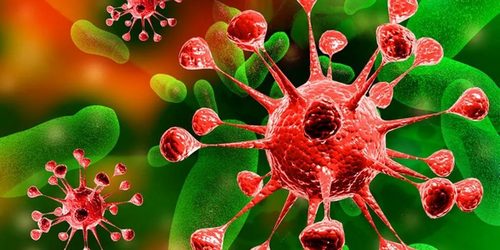Each of us knows that in the history of mankind there have been epidemics that have claimed the lives of hundreds of thousands and even millions of people. Entire cities were dying from different diseases that were worse than wars by disease had nowhere to hide, no escape.
But today, when we live in the modern world, this comfortable and this, at first glance, safe (there are no devastating outbreaks), not all realize the importance, and sometimes a vital necessity of vaccinations. So, for what need vaccinations and which diseases they protect?
It is important to understand that vaccination doctors do not just because they want to, or to carry out the plan of vaccination, and to each individual young child to protect from the possibility of Contracting this infection, and prevent disability. Infection is a very serious thing. It is like a fire. It suddenly occurs to stop it is very difficult. What is dangerous are those infections that we vaccinate. Diphtheria is a high mortality rate.
To treat it only with horse serum, are extremely dangerous for children with allergies or allergic reactions. Tetanus. Hurt, we can get tetanus. And to treat it, too, can only tetanus serum derived from horse serum. And this is not a safe treatment, on the one hand, and on the other, it helps not always. It is believed that the mortality from tetanus reaches 90-100%. Measles. Chickenpox.
Those infections that have children with a frequency of 1 in 1000 or 2000 cases is encephalitis. When bark encephalitis in the future there are any violations of the intellectual development of the child. Pig. This is an opportunity to complications such as infertility, particularly in boys. So I want to say to all parents: think, read. Don’t just listen to your emotions and the emotions inspired you to someone.

WHY THE NEED FOR VACCINATIONS?
- Innate immunity is not always capable of resisting severe and contagious infections. When a newborn comes into the world, he has the so-called innate immunity. In addition, it is protected from some infections by maternal antibodies that are passed to the baby via the placenta (in addition to the antibodies transferred to the infant with the first batch of milk – colostrum). But such immunity is not from all diseases. And eventually he weakens. Of course, people are born with immunity – it protects our body from pathogenic germs resident on the skin and mucous membranes, however, immunity to severe and contagious infections, there is no one newborn baby. This immunity to a specific infection can occur only in two cases: if the child gets infected the infection on their own, and if any infectious disease or if the child will be brought from outside the weakened pathogen. In this case, the disease will not occur, and antibodies are produced to defend the body of the child from the pathogen and the child will not get sick. On this principle, and based vaccination. Why hurt lying in the hospital, to be treated with antibiotics, if you can use a natural reaction of your body?
- In many cases, treatment of infection is ineffective, and from a number of infections, the treatment is not in principle. Very often vaccination remains the only reliable means of prophylaxis, as infections become increasingly resistant to antibiotics, and they are almost impossible to cure. For example, Hib-infection – record resistant to antibiotics, there is also the growing addiction to them pneumococcal infection, which means that treatment with antibiotics is often ineffective. Some diseases don’t even have specific treatment (viral infection) – they can only be prevented (e.g., there is no cure for polio, it can only be prevented through vaccination).
- The likelihood of adverse reactions and complications of vaccination in the hundreds and thousands of times less than the disease. The view that vaccinated 100% to protect the child from infectious diseases, mistakenly. But the fact that it significantly reduces the risk of these diseases is an undeniable factorso narrow-minded opinion that the risk of complications of vaccination greater than the risk of deaths and disabilities caused by the disease, completely contrary to the facts.
Look at the statistics.
THE RELATIVE RISK OF COMPLICATIONS AFTER VACCINATION AND RELATED INFECTIONS
The risk of TB for unvaccinated of 1:500. The likelihood of complications in the form of generalized infection with BCG vaccination – less than one in 300 million Chance of developing of paralysis in polio – 1:100. The possibility of paralysis at the first vaccination with a live vaccine – 1:160 thousand.
The risk of deaths when the disease pertussis – 1:800, diphtheria– 1:20, tetanus – 2:10, by grafting such a risk.
- Many infectious diseases can lead to death or disability. For example, extremely high lethality rate of tetanus (higher only in rabies and pneumonic forms of plague). Even with the use of modern methods of treatment dying 17-25% of cases. This children’s “harmless” disease like measles is one of the main causes of death among young children. In 2013 died from it 145 700 thousand people. Banal mumps can cause deafness, rubella in pregnancy almost always leads to stillbirth or severe congenital malformations in children known as CRS.
- Vaccination protects against epidemics. The fact that in order to protect the nation from any threat of infection, at least 80% of the population should be vaccinated specifically from her. In Russia there is an experience of rejection of mass vaccination is an epidemic of diphtheria observed in the mid 90-ies. In that period of time the vaccine is not purchased by the state it ended an unprecedented epidemic with the incidence of 25 per 100,000 in 1994-95, in which the CIS ill 120,000 people and killed more than 6 000. Vaccine refusal endangers all of humanity.
Around the world vaccinations. In many developed countries immunization schedule is more saturated than the Russian, and the absence of vaccination, the child is considered bad parenting on his health. The choice is yours, the child can not take care of the protection of their health, and the answer to the question “to vaccinate or not to vaccinate?” depends on the willingness of parents to think, to analyze, to weigh the risks and the willingness to accept responsibility for their decisions.



